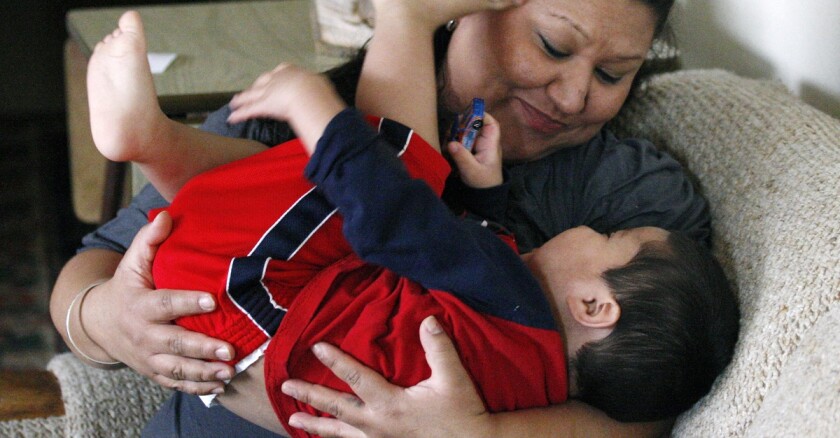But many parents can't afford high-quality child care and don't have access to preschool. With the price of child care so high, ranging from $200 to $580 a week, more parents are believed to be relying on family and friends to watch their kids while they work.
According to a 2016 survey, nearly a third (28 percent) of babies spend at least 10 hours a week in the care of a family member, friend or neighbor, which is referred to as FFN care. Money isn't the only reason parents turn to FFN care. As the "gig economy" grows, more and more people have atypical schedules that fall outside the hours of traditional child care.
Facing that reality, some local governments are starting to seek out and help these informal providers.
"If I’m watching my grandchild, I might not know the technical aspects of what’s happening in their development. Children deserve a quality care setting," says Jammie Albert, principal associate at the National League of Cities' Institute for Youth, Education and Families, which is working with Minneapolis on this issue.
Licensed providers are trained to monitor children's development, including their behavior and whether they're hitting "milestones" like walking and speaking. Child-care training requirements vary by state, but they usually include at least a dozen hours of courses in the first year and continuing education.
Minneapolis -- where an estimated 70 percent of kids are in FFN care -- has been leading on this issue, working on initiatives to expand the knowledge of informal providers. The city is currently developing The Child Care Providers Network, an online portal that gives FFN providers access to evidence-based curriculum on child development. It will also include information on legislation that might impact them, upcoming trainings, immunization requirements and resources for becoming a licensed at-home provider.
"I don’t want to rip babies out of grandma’s arms and put them in a center. That’s the last thing I want. What I want is for grandma to be able to understand the brain development that happens during this time and how they can expand on that," says Deby Ziesmer, an early childhood expert who's consulting with the city of Minneapolis on this project.
She reached out to a group of FFN caregivers in the area and found that they were eager to collaborate and to learn more. They felt isolated since they worked on their own, and they lacked access to basic trainings like CPR and First Aid.
Ziesmer created a private Facebook group for them to have a safe space to talk, and a few of these communities have since held free trainings for FFN providers. But the funding for these trainings is inconsistent. The last time the state funded FFN trainings was in 2007 -- for a cost of $750,000.
Ziesmer started lobbying state lawmakers for more money and resources this year. She hopes to eventually work with the legislature to create a statewide FFN support system that's tailored to meet the cultural needs in different areas, particularly rural ones, which are child-care deserts.
Of course, it's difficult to identify every FFN provider, in part because they tend to be in marginalized communities or in more remote areas. This is why more comprehensive legislation is needed, experts said.
But there's resistance from some lawmakers who equate these informal settings with incompetence. Ziesmar chalks some of that thinking up to racial bias since FFN providers tend to be people of color.
"If I, a white woman, goes somewhere with my grandchild, people think it’s wonderful she has me to watch her," says Ziesmar. "If my friend who is African-American is out with her grandchild, people think 'lets get that child in proper care.'"









